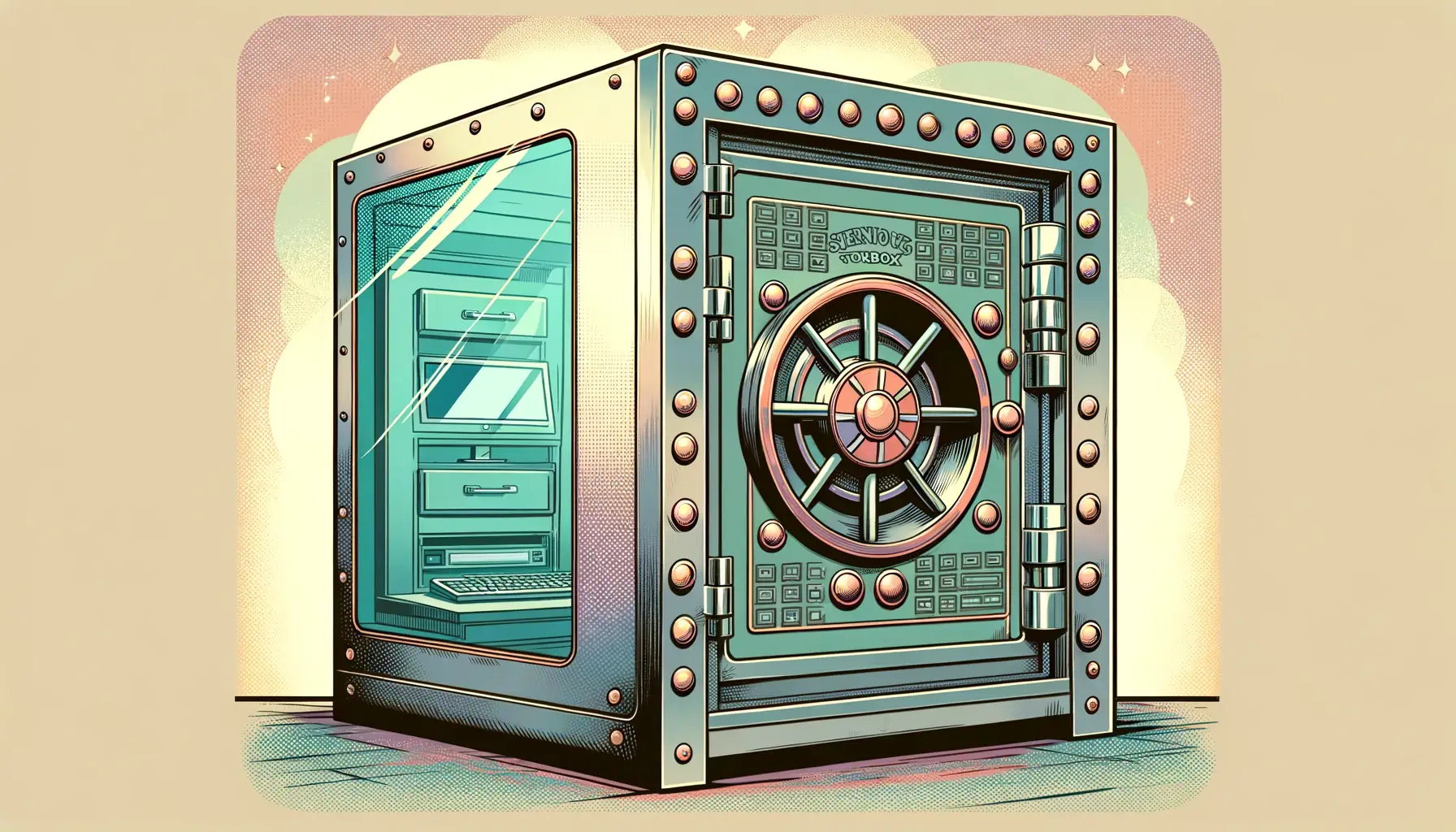In today’s digital age, the security of WiFi connections is a concern for everyone. Networks not utilizing the latest WPA3 protocol are particularly vulnerable to tampering, leaving personal data exposed to tech-savvy individuals within a 50-meter range of your devices. Fortunately, there’s a simple, cost-effective solution that doesn’t involve replacing your network routers: Virtual Private Networks (VPNs) . By encrypting your data, VPNs offer a shield against potential intrusions. The best part? Securing your connection with a VPN (such as the trusted one offered by NordVPN ) is as easy as clicking a single button, making it a user-friendly option for enhancing your online privacy and security.
In this article, we dive into some of the ways your internet connection might currently be compromised, and some of the ways this could be remedied.
Is data processed with PDF Shelter compromised?
Thankfully not! PDF Shelter processes all your documents within your own computer. Since they never need to leave your computer, nobody can intercept their transmission – because the transmission never happens in the first place! Additionally, PDF Shelter utilizes HTTPS encryption and DNSSEC to ensure its code is never tampered with.
Alas, most other websites and programs rely on cloud-based services that move your data around all the time, and might not be so strict about your safety. The remaining of this article goes in depth on what could go wrong with their use.
Why are WiFi connections not based on the WPA3 standard compromised?
WiFi security has evolved over the years, with WPA3 being the latest and most secure standard. However, many networks still rely on older protocols like WPA2 or WEP, which are vulnerable to several hacking techniques. These older standards are susceptible to brute force attacks and do not offer the same level of encryption as WPA3, leaving user data potentially exposed.
What is the issue with home and corporate networks not supporting WPA3?
The slow adoption of WPA3 in both home and corporate environments poses a significant security risk. Many existing routers and devices are not compatible with WPA3, or require firmware updates that are not always straightforward or available. This incompatibility leaves networks reliant on older, less secure WiFi standards, making them vulnerable to cyber attacks.
Is it more cost-effective to upgrade to WPA3 routers or to use a VPN plan?
Upgrading to WPA3-compatible hardware can be a costly endeavor, especially for businesses with extensive network infrastructure. This cost includes not only the new routers but also potential service fees for installation and configuration. In contrast, a VPN plan offers an immediate, cost-effective solution to secure data transmissions across any network, regardless of the underlying WiFi standard.
How can connections to HTTP websites be compromised even with WPA3?
Even with the robust security of WPA3, connections to HTTP websites remain unencrypted. This means that any data transmitted to or from these sites can be intercepted and read by cybercriminals. HTTPS addresses this issue by encrypting the data, but not all websites support this protocol.
In what ways can interactions with HTTPS websites be compromised?
Interactions with HTTPS websites, though generally secure, can be compromised through various DNS attacks. DNS, or Domain Name System, is like the internet’s phonebook. It translates website names that people understand, like “google.com,” into numerical IP addresses that computers use to communicate with each other. However, this system can be vulnerable to attacks such as DNS spoofing or poisoning. In these attacks, cybercriminals manipulate the DNS to redirect users to fake websites, even if the correct website address is entered. This can lead to data breaches and loss of sensitive information, despite the encryption provided by HTTPS.
How can VPN servers mitigate these DNS attacks?
VPNs (Virtual Private Networks) can play a significant role in mitigating various DNS and related attack vectors. These are some of the ways VPNs can counter the most common of them:
DNS Spoofing/Poisoning: VPNs often provide their own DNS servers, which are usually more secure and less prone to spoofing or poisoning compared to standard ISP DNS servers. By routing all DNS requests through the VPN’s encrypted tunnel, the risk of DNS tampering is greatly reduced.
Man-in-the-Middle (MitM) Attacks: VPNs encrypt the data transmitted between the user and the VPN server. This encryption means that even if an attacker intercepts the traffic, they cannot decipher it. Additionally, by using a trusted VPN, users can be more confident that their initial connection to the VPN server (and thus subsequent connections to websites) is secure and not subject to MitM attacks.
DNS query tampering: While HTTPS secures the data between the browser and the website, it doesn’t protect the DNS query itself. A VPN encrypts the entire data packet, including the DNS query, preventing attackers from seeing or modifying the requests.
SSL Stripping: By encrypting all traffic, including DNS requests, a VPN makes it much harder for an attacker to perform SSL stripping attacks. The attacker would not be able to intercept and modify the traffic to downgrade the connection from HTTPS to HTTP.
Additionally, some VPNs offer features like “Kill Switches” which automatically disconnect your device from the internet if the VPN connection drops, preventing data leaks. Also, many VPN services implement advanced security protocols and regularly update their infrastructure to combat new threats, adding an extra layer of security against evolving attack vectors.

Why is the threat of ransomware a significant concern for businesses?
Ransomware attacks, where cybercriminals encrypt a company’s data and demand a ransom for its release, have become increasingly common and can cost millions of dollars. These attacks not only lead to financial loss but can also damage a company’s reputation and customer trust. Nowadays, they target not only big international corporations, but also small attorney offices, financial departments, and even hospitals.
What are some famous recent ransomware incidents?
Recent ransomware attacks in 2023 have been numerous and significant, affecting a wide range of industries and organizations. Some of the most notable attacks include:
Western Digital: This company faced an attack by the BlackCat ransomware group, which leaked alleged stolen data including footage from a video conference meeting.
City of Dallas, Texas: Dallas was hit by the Royal ransomware gang, causing significant network outages and forcing the closure of city courts.
Prospect Medical Holdings: This healthcare organization, which operates 16 hospitals and employs over 18,000 people, suffered an attack by the Rhysida ransomware gang. The attackers accessed and potentially sold sensitive information including patient details and financial data.
MGM Resorts: MGM Resorts experienced severe disruptions due to a ransomware attack by the BlackCat group. This attack impacted its hotel and casino operations and resulted in substantial financial losses.
Boeing: The aerospace giant was targeted by the LockBit ransomware gang, leading to the leak of sensitive data and an ongoing investigation.
Henry Schein: This healthcare supplier suffered two consecutive attacks by the BlackCat group, impacting its manufacturing and distribution businesses.
PayPal: Experienced a credential stuffing attack, compromising tens of thousands of accounts with access to sensitive personal information.
DISH Network: Faced a ransomware attack that disrupted its services and platforms, affecting nearly 300,000 individuals.
NCR: A financial services firm hit by a ransomware attack that disrupted its payment processing systems, with the BlackCat/AlphV group claiming responsibility.
MOVEit Attack: This widespread attack exploited a vulnerability in MOVEit Transfer software and was carried out by the CL0P ransomware group. It affected numerous large companies including the BBC and British Airways.
How does the cost of a VPN compare to potential data breach losses?
The cost of a VPN service is negligible compared to the potential financial and reputational damage of a data breach. For a relatively small investment, a VPN provides a significant layer of security, protecting against various cyber threats and ensuring the safety of sensitive client and company data.
To explore how Nord VPN can enhance your online security and protect your data, click on this link to check their range of trusted and user-friendly solutions.

References
- https://www.zdnet.com/article/wpa2-security-flaw-lets-hackers-attack-almost-any-wifi-device/
- https://www.cloudflare.com/learning/dns/dns-cache-poisoning/
- https://www.techtarget.com/searchSecurity/news/366564303/10-of-the-biggest-ransomware-attacks-in-2023
- https://www.bleepingcomputer.com/news/security/the-biggest-cybersecurity-and-cyberattack-stories-of-2023/
PDF Shelter might earn comissions from purchases made from NordVPN.
